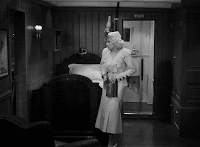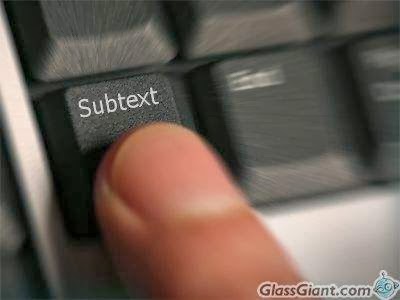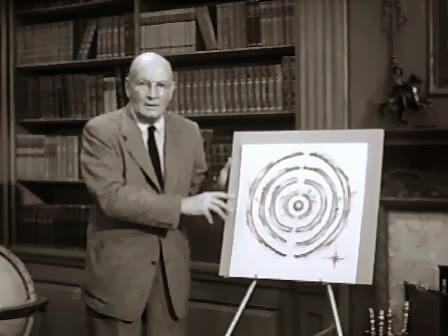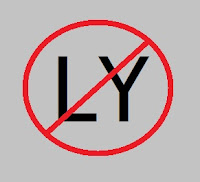Three weeks until San Diego ComicCon!
As it happens. I’m actually a bit bogged down right now, trying to get everything set up for SDCC while also doing a ton of edits (and also trying to deal with a killer headache). To be honest, I was half-thinking of skipping this week.
Fortunately for all of us, Timothy Johnson stepped up and offered to scribble out some quick thoughts on editing as a tool for improving our writing. Tim’s an editor based out of Washington, D.C., and he’s got a debut sci-fi/horror novel, Carrier, available right now from Permuted Press (go check it out). All things said, he has a pretty good idea what he’s talking about. You can find him regularly on Twitter or Facebook.
Next week, I’ll be back to talk about sorting through feedback. For now, here’s Tim…
——————-
This post is not about commas. It’s not about mechanics or style. It’s not about verb conjugation or misplaced modifiers.
I know many writers bemoan the editing process. I get it. It can seem unnecessary and even like a waste of time. But I promise you it’s not. Even though you wrote your story, it’s still a crudely formed lump of clay.
So, I’m not going to get into the nuts and bolts of grammar. This post is about helping you, a writer, become better at writing. Through editing, you can take your writing to the next level. It’s about how you take the word stream of your writing process and turn it into a cyclical filtration system for distilling tight, compelling prose.
It’s basically how to become a Brita filter for literature.
If you came in here thinking, “Ugh, I don’t want to learn stuff. This is why I pay an editor to make my writing good,” stick around. As an editor, I can assure you I’m human, and that’s relevant because there’s a quality quotient that we can achieve based upon the work you present to us. That is to say, if you serve us crap, we might be able to make a crap casserole, but it’s still a crap casserole. Give us better ingredients to work with, and the end result will be better for it.
So pick up your hammer and chisel, and let’s get to work.
Find your brain stutters.
If you’re human, you probably say, “um,” more than any other word in a typical day. We say, “um,” when our brains search for the right word but our mouths want to keep going. Similarly, we have the same disconnect between our brains and our fingers, those overzealous bastards.
“That” is simple. It’s the most overused word in the English language. If you see “that” in your writing, chances are it’s unnecessary and you can destroy it with zero regret.
“This/these/those” are a little different. We often use “this/these/those” as demonstrative pronouns. That’s basically fancy grammar talk for “you know what I’m talking about, shut up.” And they’re perfectly acceptable, grammatically speaking. The problem is they’re vague, and if our objective is to get our language tight and compelling, they aren’t going to do the job.
Find these (see what I did there?) and destroy them. Ask yourself what you’re actually writing about, and use a noun.
Another stutter to look out for is passive voice. For many people, it can be difficult to recognize, and some will even argue it’s not that big of a deal. Well, to those people, I say it’s super popular in legal speak for a reason: passive voice is unclear and confusing.
We often write passive voice because we have action-oriented minds. We consider more strongly the thing that is happening than the people who are performing the action. You get a pass as a human, but as a fiction writer, you don’t get to rest on your laurels. Writing active sentences will serve you better.
To find your passive sentences, look for statements in which it isn’t clear who or what the subject is. Most times, you can find passive voice by looking for any form of the verb “be.”
Let’s write a stupendously ridiculous example that combines all three of these brain stutters:
“This is something that you are wanted to do.”
Now, if we unsuck that, it becomes the following:
“I want you to kill him.”
See how this edited version is way more direct, clear, and powerful? If this stuff is a bit too abstract for you, let’s dial it back a bit.
Find your weak language.
Generally, people write how they speak. There’s nothing wrong with that, but one of the points of thinking about your own writing critically is to construct storytelling prose that isn’t boring, mundane, everyday language as if you’re telling someone a story in a grocery store checkout line.
You can certainly crank the wrench too far and edit the human quality out of your words, so the onus is on you to find a balance where your prose leaps off the page but still is identifiable as yours.
“To be” is the worst offender of being weak. I mean, “to be” is the worst offender of weak language. “To be” verbs can signify passive language (see above), but most often, they mark an opportunity to do something more interesting. Find all instances of “be/been,” “is/are,” and “was/were,” and see what else you can do with those sentences other than pointing out that the subjects of those sentences exist.
Beyond existential quandaries, however, authors tend to filter actions unnecessarily. For example, they may relate how the main character felt a bullet hit his arm, rather than writing, “The bullet tore through his arm.” Similarly, authors tend to explain how the main character watched as a comet flew through the atmosphere instead of writing, “The comet blazed across the night sky.”
Unless your point is the character’s internal experience with these happenings, you are creating a buffer zone between me and the visceral experience. This is akin to pulling your punches in boxing. Are you trying to lose the fight for your reader’s attention? Find all instances of “feel/felt” and “watch/watched/see/saw.” Chances are, you can hack the first part of the sentence off, and nobody will miss it.
Moving on, Stephen King wrote that the road to hell is paved in adverbs. He then continued to use adverbs, but I digress. What are adverbs? They are essentially any word that ends in “-ly.” So, “happily,” “dangerously,” “doggedly,” “grimly,” and on and on. You get the idea. These words are useful, but they signal a weak verb. Like adjectives, which modify nouns, adverbs modify verbs; however, unlike nouns, verbs have the power to imply additional information. In other words, we don’t need no stinkin’ adverbs.
Find them and destroy them. While you’re at it, take care of “very,” “almost,” “about,” and the like. They indicate inexact language and have no place in tight, powerful fiction. If we don’t get the idea from the word you’re modifying, you’ve used the wrong word.
Let’s keep going. I’m good. You good? Good.
Gerunds. Gerunds are the verb form that ends in “-ing.” Generally, gerunds describe a process that is ongoing, and while there’s technically nothing wrong with them, many authors overuse them and use them incorrectly. Seek them out, and see if the regular form of the verb will suffice. For example, what’s the difference between, “The hobbits were dancing at the Prancing Pony,” and “The hobbits danced at the Prancing Pony”? Five letters and a space, and stronger prose.
As a final language-strengthening tip, look for repetitive words. It can be jarring to a reader to see the same word twice in a short amount of space, but also variety is the spice of life. If you find you’ve used the same word twice in the same paragraph (even the same page, if you want to be as anal as I am), it’s an opportunity to edit and make your writing more interesting. Seize that chance. Your readers won’t thank you, but that’s the point. They’ll never know your writing was worse. They’ll just be impressed at how good it is.
Oops! You learned something.
By employing these tips, I promise your work will read better. And, by editing your work, you will force yourself to think critically about your prose. You will slow yourself down, focusing on the small ideas instead of concerning yourself with the big ideas. The small ideas are extremely important, because only through those ideas do we, as readers, understand your big ideas.
If you keep at it, eventually, you will recognize these weaknesses while you write, and you will discover better versions of your sentences with progressively less effort. It will become automatic and ingrained in your writing. By using these techniques to improve the writing you’ve already done, you will improve your future writing before you write it. More important, you’ll look back and realize that, on a fundamental level, you’ve become a better writer.






.jpg)


